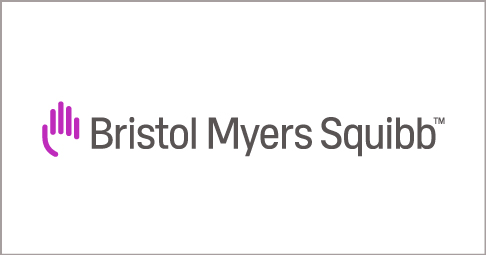said Dr Robert Braun, Haematology-Oncology Disease Area Head at Bristol Myers Squibb UK & Ireland.

Cancer Equals: UK wide research highlights differences in cancer care
We are proud to launch our Cancer Equals campaign, which aims to understand and help address the many factors leading to delays to diagnosis and differences in experiences of cancer across the UK.
To form the foundations of this campaign, we carried out novel quantitative and qualitative research in partnership with Shine Cancer Support. From this research, we developed the 1,000 voices, not 1 report that highlights the variety of factors leading to people from different backgrounds having different cancer experiences. Click here to read our research findings on the Cancer Equals campaign hub.
Cancer Equals shines a light on the real, human impact of inequalities in cancer across the UK. The campaign aims to better understand and raise awareness of the root causes of these inequalities, in order to drive change and create solutions to this significant issue.
A person's background or situation is a significant determinant of their experience of cancer.
The research highlighted that people from minority ethnic groups experience seven months longer delays between noticing cancer symptoms and receiving a diagnosis, compared to white individuals (11.9 months vs 4.9 months).1
Socioeconomic status (SES) was also found to impact a person’s likelihood of seeking a diagnosis and their understanding of the condition. Minority ethnic groups felt the negative financial impact of cancer the most, alongside people of lower SES and under 55s.1
Many factors lead to diagnostic delays and differences in people’s experiences of cancer – no one’s story is the same.
The 1,000 voices, not 1 report suggests that drivers of diagnostic delays could include failures to raise awareness of cancer and its associated symptoms, and barriers to health seeking behaviours.
People from minority ethnic backgrounds were more likely to report not taking their symptoms seriously compared to white individuals (34% vs 21%) or relating their symptoms to other conditions (51% vs 31%).1 Those of a higher SES were more likely to disagree with the statement “I had heard about cancer and had a good understanding of the disease”, compared to people from a lower SES (55% vs 44%).1
Furthermore, those with a weak understanding of cancer prior to diagnosis were twice as likely to need two to three appointments before referral, compared to those with a good understanding of cancer before getting diagnosed (30% vs 15%).1
These findings demonstrate there is a greater need to empower people to recognise cancer symptoms and navigate the health system.
Health inequalities are an ongoing and pressing issue, with the government, NHS, and patient groups committed to increasing earlier diagnosis and improving health outcomes.
Cancer that is diagnosed at an early stage, when it is not too large and has not spread, is more likely to be treated successfully.2 Research has shown that every month after a cancer diagnosis that treatment is delayed, the risk of death can be raised by around 10%. Therefore earlier diagnosis, and reduced delays to treatment, could improve cancer survival rates.3 That is why, alongside Cancer Equals, Bristol Myers Squibb continues to partner with the NHS and patient organisations to support the NHS with capacity and oncology workforce challenges.
Our collaborations include a partnership with Macmillan Cancer Support to develop an upcoming, free-to-use workforce planning tool, and an initiative to offer pre-habilitation in cancer care. These projects aim to provide tangible solutions to help improve hospital resources and capacity across multiple NHS Trusts, as well as increase access to innovations in cancer care. We have also provided funding to support community injection and infusion centres. Additionally, we are providing funding for health equity initiatives to several UK patient organisations, including supporting Blood Cancer UK’s upcoming project aimed at reducing inequality in clinical trial recruitment.
What can we do
The findings in our 1,000 voices, not 1 report highlight the urgency with which these inequalities need to be confronted.1 This is just the first step to bring about real change.
Tackling these health inequalities requires the collaborative efforts of multiple people and groups coming together to find solutions. We are convening the Cancer Equals Coalition of experts, policymakers, and patient advocates to work together to design and drive practical long-term solutions to the challenges our research has uncovered. Find out more.
However, it is also vital that people diagnosed with cancer and their loved ones know where to find support now. There are a range of services that exist to help people access the healthcare system and support networks, increase awareness of cancer, and provide information on possible financial help. Find further support here.
Delays in cancer diagnosis and differences in cancer experiences impact prognosis. These factors can and must be addressed. There is no time to wait.
References
1 Bristol Myers Squibb. 1,000 voices, not 1. 2024. Available at: cancerequals.co.uk. Last accessed March 2024.
2 Cancer Research UK. Longer, better lives: A manifesto for cancer research and care. Available at https://www.cancerresearchuk.org/sites/default/files/cruk_manifesto.pdf. Last accessed March 2024.
3 Hanna, T.P. et al. (2020) ‘Mortality due to cancer treatment delay: Systematic review and meta-analysis’, BMJ, p. m4087. doi:10.1136/bmj.m4087.
Date of preparation: April 2024
Job number: ONC-GB-2400147
